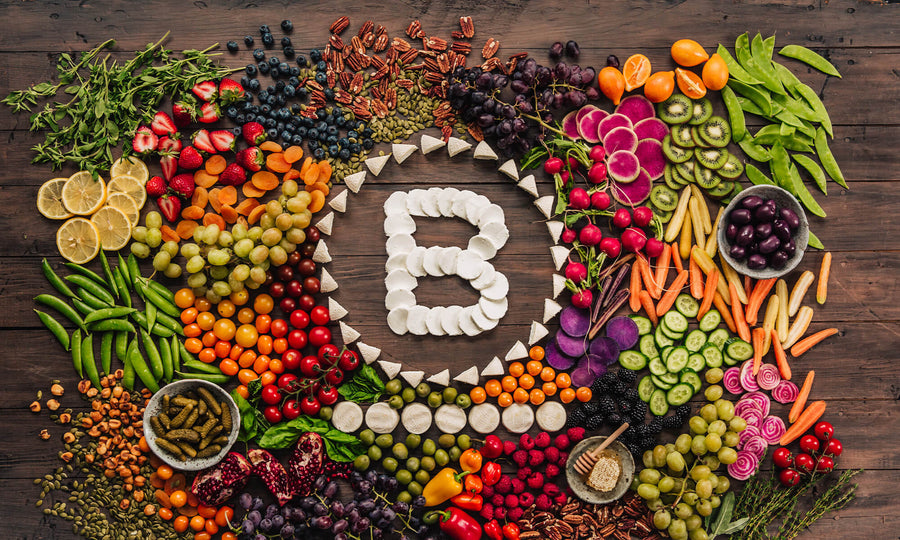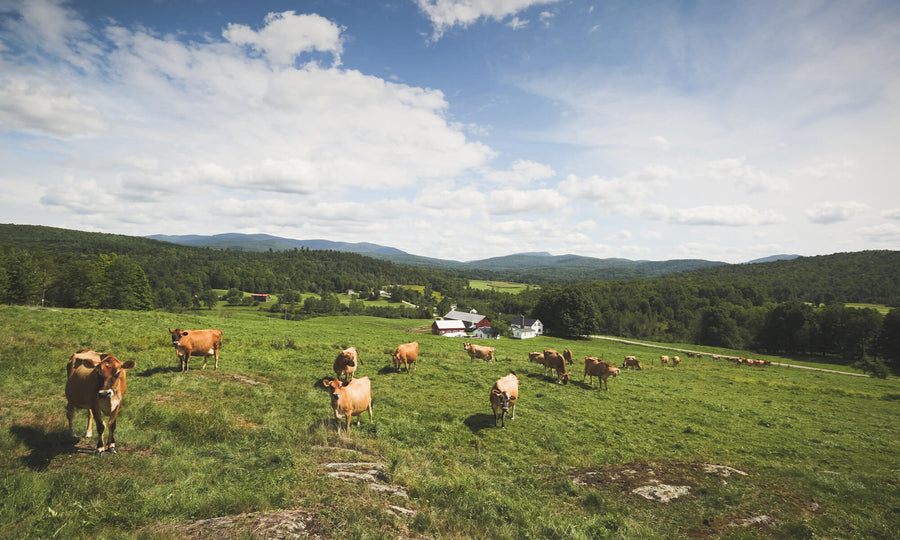History tells us that cheesemaking was women’s work.
Traditionally, while men were busy working the land and managing the livestock, women were charged with turning milk and cream into cheese and butter.
It’s a picture of idyllic pastoral life, right? A simple division of labor between the breadwinner and the household manager. To feed her family, women harnessed nature’s most unpretentious ingredient – fresh milk – and transformed it into cheese, preserving it and providing valuable food for her family’s table.
Beyond Cheesemaking
Let’s take it one step further and say that cheese and cheesemaking was more than just women’s work – its origin is inherently feminine as well. Nobody will disagree that lactation is a woman’s business; without women there would be no milk, and what a sad day for cheese that would be. Whether from a cow, goat, sheep, water buffalo or human mama, we make the milk and the milk sustains life. Prove me wrong, I’ll wait.
You would think the act of sustaining life would be enough job for one woman, and it probably is, but the pesky business of life tells us there’s far more work to be done. While women were busy making cheese on America’s early home front, they were also busy wrangling their kids, keeping their fires going, washing clothes; the endless list goes on.
The work of raising kids and keeping house didn’t stop, but the cheese had to be made. While simultaneously maintaining their status as the giver and maintainer of life, women multitasked their way through the day. While waiting for whey to drain from their muslin cheesecloth, they got busy doing everything else.
Cheesemaking was the original nap-time project.
The more things change, the more they stay the same.
And here we are in 2020 on the cusp of International Women’s Day, and while much has changed for the modern woman, a lot remains the same. Whether we are part of dual earning household, holding down the home while our partners work outside of it, or part of the growing contingent of women with stay-at-home partners, women still seemingly do it all, all at once, and that gets overlooked far too often.
In the eternal effort to “have and do it all” – an almost cruel utopian benchmark that has been spun for my generation of women – we are challenging ourselves every day to find a balance between work and home.
We want to show up for our careers and lean in at work. We are told that we can have it all if we give our all, but all of us feels thin most days, especially with young children at home who need us to show up for them.
The cheese has to be made, remember.
The women are alright.
Don’t feel bad for us, and let’s not overlook the efforts of men. We know that men are not immune to this struggle, and that the pinch is felt by both genders, no matter what your family structure looks like. Alas, it’s International Women’s Day, so we’re headed to the front of the line for some research-backed recognition.
A 2011 study in the American Sociological Review found that women do far more multitasking than men, and it’s stressing them out. Women experience more conflict between their home and work life because, the study suggests, employed mothers give precedence to familial demands over their career demands. That means that all this talk about work life balance is primarily being had by, and for women.
Forbes aptly calls it women’s “Mental Load,” also known as having a perpetually full mental plate of invisible stress and preoccupation. It’s the meal planning, the list making, the doctor’s appointments, the childcare coordination. We are project managers at work and come home to a similar scheme of logistics and a new set of obstacles.
The line between work and home is spread as thin as we are.
In good company.
At Vermont Creamery, I’m lucky to be in the company of so many strong, inspirational working moms. My boss Kate is one; our president, Adeline is one; Adeline’s boss, Heather is one, and so on, right up the ladder to our CEO, Beth Ford, a working mom to three teenagers. High fives ladies, seriously.
Every day I’m reminded that this struggle to do and be all to everyone is not unique to me. In fact, I’m only a relatively new inductee to this ambitious sorority of working mothers.
Nearly every morning we live what feels like an entire day before even leaving the house. If it gets to be 9 a.m. and my desk neighbor, Eliza, hasn’t made it to work yet, I feel the urge to send a wellness check text—for fear she may be huddled in a corner, crying, covered in her daughters’ maple syrup-laden breakfast, while searching for her laptop charger.
But she always makes it, because the cheese has to be made.
Then there’s Kendra (pictured above), a magnificent mama, dairy farmer, cheesemaker hybrid, who somehow manages to arrive at the Creamery between 3 and 5 a.m. every morning to run our pasteurizer. When she returned to work after having her second daughter, she used her early morning commute to pump her own milk. She pumped while driving because her baby wasn’t even awake when she started her workday, and the cheese, quite literally needed to be made at Vermont Creamery.
Qualitative research backs up this narrative. Hessing’s 1994 research found that many working mothers seek to save time by multitasking at home and at work. For these women, multitasking maximizes time use and serves as a time-management strategy that allows them to deal with the double duty they experience being wage earners and care givers.
We’re lucky to have the choice to try to be and do it all, and we’re doubly lucky to feel supported and seen by our own leadership team, which includes many women.
We celebrate International Women’s Day here because we believe in true gender equality, but also because damn, women just need a day to themselves.
If you haven’t read Anne Saxelby’s 5 Minute History of Women in Cheese, please do. In it, she details how women reclaimed the craft of cheesemaking in the 1970’s and continue to lead the industry to this day. Full disclosure: if it wasn’t for Allison Hooper, one of the founding mothers of the American cheese movement, I wouldn’t be here, writing from my lovely desk at Vermont Creamery. So, thanks Allie, and thanks to all the female founders who paved the way for us, because, after all, the cheese has to be made.
Kara manages communications and outreach for Vermont Creamery; she’s a proud mom to Parker, a cultured butter enthusiast and unofficial office DJ. Vermont Creamery is committed to equal pay for equal work and is a supporter of the Vermont Women’s Fund. For more information about our mission, click here.




